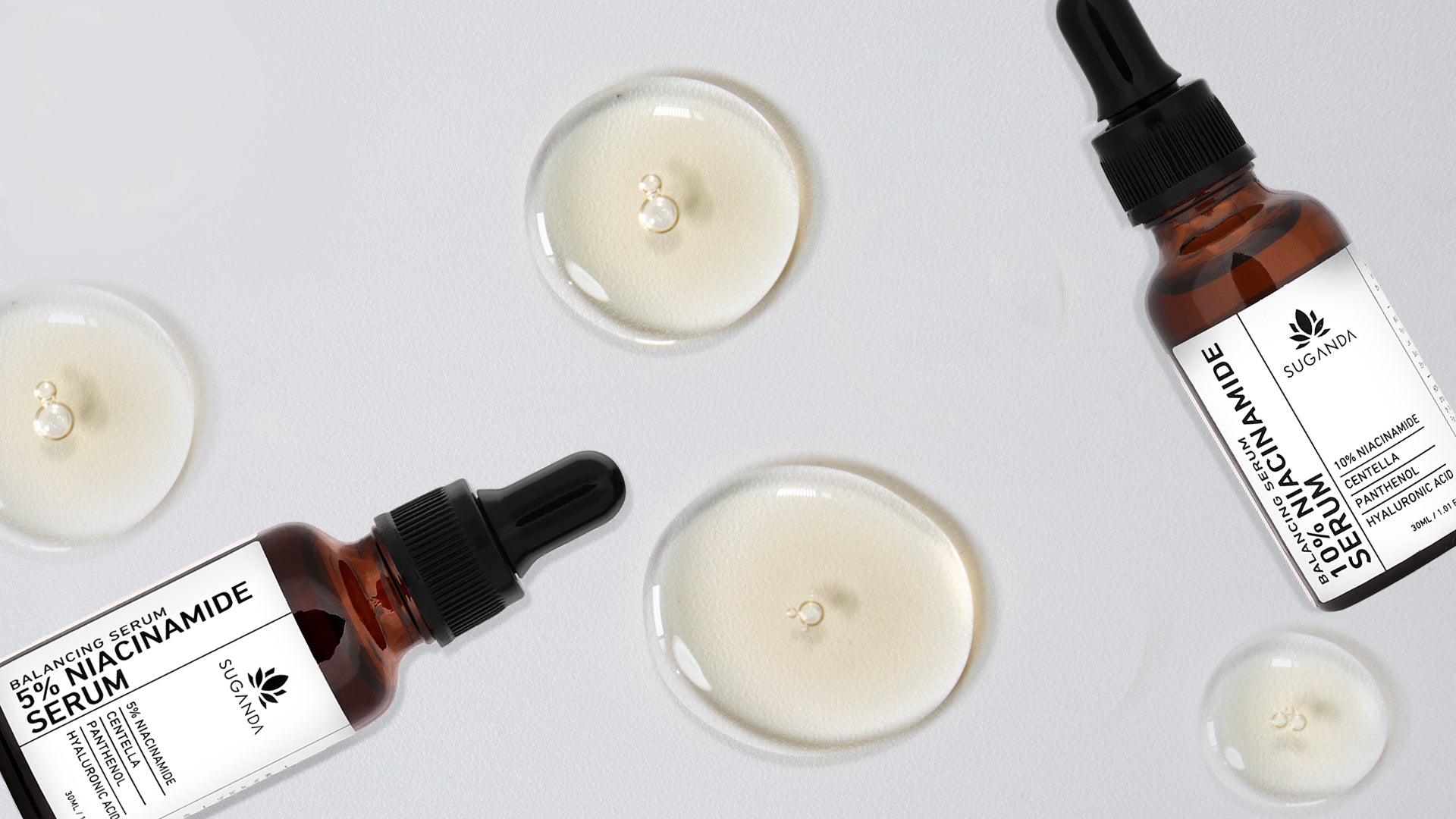In recent days, as you scroll for serums, probably ‘Niacinamide’ is the most prevalent word that you come across. It has been an unsung hero in the skincare industry for a long and is now gaining its prominence.
Niacinamide, also known as nicotinamide, is a type of vitamin B-3, which is an essential nutrient. Niacinamide supplementation can effectively deter B-3 deficiency.
And there's a lot more to this nutrient, particularly when it comes to skin health in general. Although more study is necessary, topical niacinamide may be beneficial in the treatment of certain skin conditions such as acne and eczema. Niacinamide, whether it be in supplement or cream form, can be developed alone or in a mixture with other ingredients.
Let us glance at some benefits of Niacinamide. Helps Treat Redness
Helps Treat Redness
Niacinamide has anti-inflammatory properties. It has the potential to block the production of many inflammatory cytokines. This anti-inflammatory property may aid in reducing the redness and irritation associated with inflammatory acne.
Collagen Synthesis
Niacinamide can aid in the stimulation of collagen production. Collagen is the main protein complex of the skin and is often referred to as "the body's scaffolding." Skin firmness and elasticity can be determined by the collagen amounts in your skin. When your collagen levels are high, your skin will look soft and youthful. It is very essential because it is the most abundant protein in your body.
Collagen stimulation is therefore never a dangerous habit.
Sebum Control
Sebum is the oily substance produced by your skin's sebaceous glands. Niacinamide is a sebostatic agent, which implies it reduces the amount of sebum secreted. This is significant because both acute inflammation and non-inflammatory acne develop when surplus sebum and dead skin cells become locked in your pores. Niacinamide minimises the likelihood of acne aggravation or even the development of acne by lowering sebum production.
Skin cell turnover rate
The skin's incapability to shed dead cells properly adds immensely to the formation of acne. Although this has yet to be proven, niacinamide may greatly boost the turnover rate of your skin's surface cells, decreasing the possibility of dead ones becoming stuck in your pores.
Restores The Skin's Natural Oil Ratio.
While Niacinamide helps increase the skin turnover rate, Niacinamide also aids in the control of your natural oils. This also lowers shine!
Increased sebum production, a greasy, waxy substance, is common in combination and oily skin types. This leads to clogged pores and the accumulation of dirt. Niacinamide helps to balance excess oil while still clarifying skin texture.
Lipid Barrier
When our epidermal lipid barrier is functioning correctly, so much about our skin improves. Our lipid barrier aids in the retention of moisture, the maintenance of elasticity, and the protection of our skin from the tough environment surrounding. Consider it a safeguard, keeping the hydration in and the pollution out.
The lipid barrier gets thinned out as skin ages due to decreased development of two enzymes: NADPH and NADH. The use of niacinamide aids in the maintenance of NADH and NADPH levels of production. This enhances skin texture and wrinkles while strengthening our epidermal barrier, promoting a favourable anti-ageing ripple effect on our skin.
All the above properties of niacinamide help treat acne-prone skin. Even so, Niacinamide is unlikely to be effective in acne treatment caused by hormones, stress, or poor dietary habits. However, it may be able to reduce the appearance of the outbreaks and relieve any redness or swelling.
Niacinamide for acne scars
Niacinamide is an effective treatment for post-inflammatory acne or hyperpigmentation, a type of acne scarring.
Niacinamide, unlike certain ingredients used to heal hyperpigmentation, is very steady. Light, moisture, and oxidizers have no effect on it (substances that introduce oxygen into environments). These are generally the components that cause other additives, such as vitamin C, to degrade, become ineffectual, and possibly irritate the skin.
Niacinamide treats hyperpigmentation by preventing melanin (skin pigment) from being transferred to the skin's surface. An additional benefit of niacinamide is that it does not cause photosensitivity, unlike other skin lightening treatment options for hyperpigmentation.
How To Use It?
As a first time user, wash your face with a gentle cleanser, apply 2-3 drops of 5 % Niacinamide on semi-damp skin before moisturising your skin. If your skin is sensitive, mix the serum in your moisturiser to avoid any irritation. Apply it once every day for a week.
If your skin has developed enough tolerance for 5% Niacinamide, and want a more potent variant, you can always switch to 10% Niacinamide serum. Like vitamin C, it can cause rashes or inflammation in concentrations higher than 10%.
Usually, the application of 5%-10% of Niacinamide does not cause any serious skin allergies. If the allergy persists for an extended period, we recommend that you seek the advice of a dermatologist (this rarely happens).
Niacinamide can improve the health of your skin when applied twice daily. The compound can aid in the treatment of irritability and hyperpigmentation. It improves the appearance of your skin by making it smooth and lightening it. However, because progress can take a few weeks, it is critical to be patient and stick to your regimen.
You can also contact us for skincare routine recommendations and expert guidelines on the products best suited to your skin type and issues.
References:
https://pubmed.ncbi.nlm.nih.gov/16209160/






 +91 9347578980
+91 9347578980